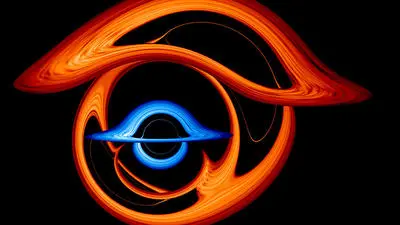Physics and the Meaning of Life
Sabine Hossenfelder
About the Course
Many have argued that science can provide data but can't answer the real mysteries of the universe; yet, Sabine Hossenfelder opposes this position. She asserts that through physics, we can make progress on the existential issues which have gripped philosophers for centuries.
By the end of this course, you will have learnt:
- How general relativity understands the 'present'.
- Some of the consequences of Einstein's understanding of the speed of light.
- Whether or not information can be destroyed.
- Whether the building blocks of the universe could be different.
- Whether there are questions that science cannot answer.
IAI Academy courses are designed to be challenging but accessible to the interested student. No specialist knowledge is required.
About the Instructor
-
Sabine Hossenfelder
"Theoretical physicists used to explain what was observed. Now they try to explain why they can't explain what was not observed."
Fearlessly critical of the scientific mainstream, Sabine Hossenfelder is a groundbreaking theoretical physicist who specialises in the foundations of science. She is a leading science communicator, a best-selling author, and a researcher. Her recent books include Lost in Math: How Beauty Leads Physics Astray, and the New York Times' Best Selling Existential Physics: A Scientist's Guide to Life's Biggest Questions.
Hossenfelder also has a popular YouTube channel, "Science without the gobbledygook," that has amassed over 80 million views. Her writing has featured in some of the world's top publications, including Scientific American, New Scientist, and Nautilus.
“A physicist who is utterly fearless, completely honest, and quite funny.” - Peter Woit, mathematical physicist
Course Syllabus
-
Part One: Introduction to Existential PhysicsWas the universe made for us? What is consciousness? And is it possible that the universe is conscious? Does the universe think?
-
Part Two: Tiny Changes to Constants Could Make Life ImpossibleHow much can science tell us about the human condition? Does science undermine the concept of free will?
Suggested Further Readings
- Hossenfelder, S., Lost in Math: How Beauty Leads Physics Astray, (New York: Basic Books, 2018).
- Rovelli, C., The Order of Time, (London: Penguin, 2018).
- Greene, B., The Fabric of the Cosmos: Space, Time, and the Texture of Reality, (New York: Vintage, 2005).
- Smolin, L., Time Reborn: From the Crisis in Physics to the Future of the Universe, (Boston: Houghton Mifflin Harcourt, 2013).
- Penrose, R., The Road to Reality: A Complete Guide to the Laws of the Universe, (London: Vintage, 2005).
- Tegmark, M., Our Mathematical Universe: My Quest for the Ultimate Nature of Reality, (New York: Knopf, 2014).


